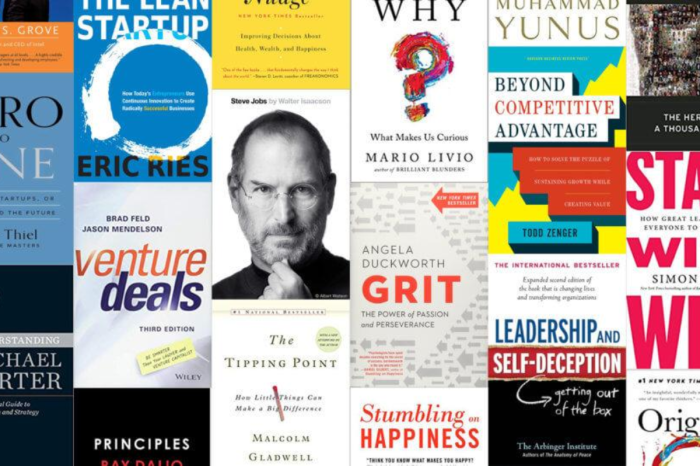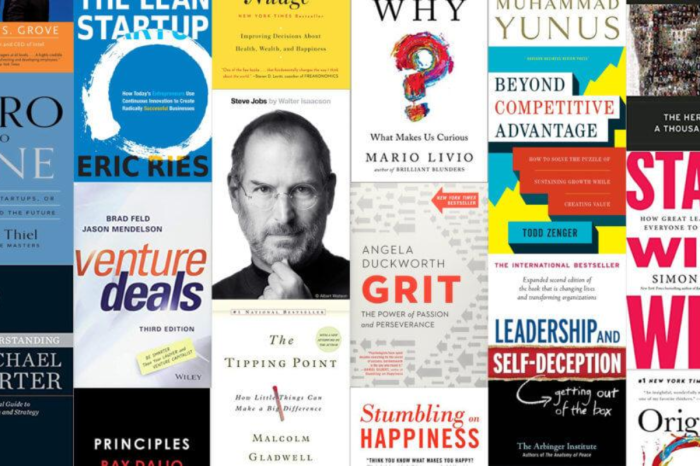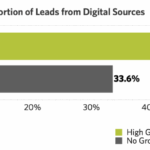Three books every business owner needs to read, offering a roadmap for success. This guide dives into essential reading for entrepreneurs, exploring how books can enhance leadership, strategy, and problem-solving. We’ll analyze the power of learning from successful business leaders, and see how real-world companies have benefited from book knowledge. We’ll also break down different book categories and highlight key criteria for selection, providing you with practical tools to identify valuable resources for your business.
From mastering leadership to conquering marketing and finance, this guide presents a curated selection of three impactful books. Each book will be summarized, demonstrating how its principles can be applied to various business aspects. You’ll discover actionable strategies to integrate these insights into your daily operations, improving decision-making, team dynamics, and overall business performance.
Introduction to Essential Business Books
Reading is a cornerstone of success for any business owner. It’s not just about absorbing information; it’s about expanding perspectives, learning from others’ experiences, and developing the crucial skills needed to navigate the complexities of the modern business landscape. By delving into the wisdom of successful entrepreneurs and business leaders, you gain insights that can accelerate your growth and propel your company forward.Books provide a wealth of knowledge that goes beyond the day-to-day operations.
They offer frameworks for strategic decision-making, techniques for effective leadership, and problem-solving approaches that can turn challenges into opportunities. The insights gained from these books are not theoretical; they are based on real-world experiences and strategies that have been proven effective in various industries. Moreover, understanding the successes and failures of other businesses offers invaluable lessons that can be applied to your own context.
Importance of Reading for Business Owners
Reading is paramount for business owners as it cultivates crucial skills. Business books provide a structured approach to leadership, strategy, and problem-solving. Learning from successful entrepreneurs offers a valuable lens for understanding market trends and competitive landscapes. For example, understanding the principles of lean manufacturing, as described in books by experts, can lead to significant cost savings and increased efficiency in a manufacturing company.
Enhancing Leadership, Strategy, and Problem-Solving Skills
Books offer structured frameworks for effective leadership, strategic decision-making, and problem-solving. A deep understanding of these concepts, acquired through reading, can lead to more informed choices and better outcomes. The ability to adapt strategies and respond effectively to market changes becomes crucial, and books provide a platform to learn from others’ experiences in various situations. For instance, a book on negotiation techniques could provide the tools needed to secure favorable deals or resolve conflicts with stakeholders.
Gaining Insights from Other Successful Entrepreneurs
Learning from the experiences of successful entrepreneurs is invaluable. Their journeys often reveal common pitfalls and innovative strategies that can be directly applied to your own business. Their insights can illuminate effective approaches to market entry, product development, and team management. For instance, understanding the growth strategies of successful tech startups can offer a blueprint for scaling your own business in a competitive environment.
Real-World Examples of Books Influencing Business Decisions, Three books every business owner needs to read
Numerous companies have leveraged insights from business books to make significant improvements. For example, adopting lean principles, as discussed in numerous books, can lead to substantial efficiency gains in production. Companies often utilize strategies from business books to address challenges in areas such as customer service, marketing, or finance.
Categorization of Essential Business Books
This table provides a concise overview of different categories of business books, offering a starting point for your reading journey.
| Category | Description | Examples |
|---|---|---|
| Leadership | Books focusing on leadership styles, team management, and motivation. | “Good to Great” by Jim Collins, “Start with Why” by Simon Sinek |
| Marketing | Books on marketing strategies, branding, and customer acquisition. | “Positioning” by Al Ries and Jack Trout, “Zero to One” by Peter Thiel |
| Finance | Books on financial management, investment strategies, and budgeting. | “The Lean Startup” by Eric Ries, “The 4-Hour Workweek” by Timothy Ferriss |
| Strategy | Books on competitive analysis, market positioning, and long-term planning. | “Blue Ocean Strategy” by W. Chan Kim and Renée Mauborgne, “Good to Great” by Jim Collins |
Identifying Key Criteria for Selection

Choosing the right business books can be the difference between a successful strategy and a missed opportunity. This crucial step demands careful consideration, moving beyond simple recommendations and delving into the specific needs of your business. A poorly selected book can waste valuable time and resources, while a well-chosen one can provide invaluable insights and practical tools. Let’s explore the essential criteria for selecting business books that truly benefit your entrepreneurial journey.Identifying a book’s value for your business hinges on understanding your current challenges and aspirations.
Evaluating a book’s relevance, the author’s credibility, and the book’s potential impact on your strategies are key components of this process. This meticulous approach ensures you’re investing in resources that will directly contribute to your business goals.
Evaluating Book Relevance to Business Needs
Understanding your business’s specific needs and challenges is fundamental to selecting relevant books. A book on lean startup methodologies might be perfect for a new venture, but less helpful for a seasoned company seeking to optimize its existing processes. Carefully consider your company’s stage of development, industry, and unique circumstances. Are you looking to improve marketing strategies, enhance leadership skills, or optimize operational efficiency?
Identifying the precise area of focus will narrow down your search effectively.
Assessing Author Credibility and Experience
An author’s background and experience significantly impact the book’s value. Look for authors with proven track records in the field, whether through successful ventures, extensive industry research, or established academic credentials. Checking the author’s qualifications and experience through online profiles or publications helps validate their claims. A reputable author lends credibility to the book’s content, making it a more trustworthy resource.
For example, a book on e-commerce strategies written by a successful online retailer would likely be more practical and relevant than one written by someone with limited experience in the field.
Judging Potential Impact on Practical Strategies
A valuable business book provides actionable insights and practical strategies, not just theoretical concepts. Look for books that offer concrete examples, case studies, and templates that you can directly apply to your business. Avoid books that are overly abstract or lack practical application. Consider how the book’s content aligns with your current processes and whether it suggests tangible steps you can implement to achieve your goals.
A book on improving customer service, for example, should offer specific techniques and actionable steps, not just vague suggestions.
Comparing Selection Methods
Different methods of selecting business books offer varying degrees of objectivity and reliability. Understanding these methods can help you make a more informed decision.
| Selection Method | Strengths | Weaknesses |
|---|---|---|
| Author Recommendations | Often based on personal experience and network knowledge. | Can be biased or limited by the recommender’s perspective. |
| Book Reviews | Offer diverse perspectives from various readers. | Reviews can be subjective and influenced by personal opinions. |
| Personal Experience | Provides a direct understanding of the book’s impact on your specific context. | Limited to your own experience and potentially biased. |
Practical Application of Book Insights

Turning theoretical knowledge into tangible results is crucial for business success. The insights from carefully chosen business books are not meant to be shelved on a bookshelf. They are tools to be wielded in the trenches of daily operations. By actively applying the concepts from these books, business owners can enhance decision-making, cultivate effective teams, and drive stronger marketing and sales performance.Successfully implementing these concepts requires a thoughtful approach, moving beyond passive reading and into active application.
This involves integrating the core principles into existing workflows, adapting them to specific business contexts, and consistently monitoring the impact of those changes. This active application will enable a more profound understanding of the material, fostering tangible and lasting improvements.
Integrating Knowledge into Daily Operations
Effective integration of the books’ knowledge starts with recognizing the principles that resonate most with your business. Identify processes that could benefit from optimization or refinement. For example, a book on lean manufacturing might highlight streamlining inventory management, leading to reduced waste and increased efficiency. This should translate into tangible changes, like a reduction in storage costs or a decrease in lead times.
Another example is adapting project management methodologies discussed in a book into daily operations. This might mean creating a clearer project timeline, or implementing a more transparent communication protocol.
So, you’re looking to level up your business game? Three books every business owner needs to read are essential for understanding the core principles of success. Knowing how to effectively utilize top tools ppc agencies, like the ones listed here top tools ppc agencies , will help you maximize your online presence. Ultimately, these books will equip you with the knowledge and strategies to make your business thrive.
Improving Decision-Making
The books’ principles can transform how decisions are made. Instead of relying on intuition alone, incorporate frameworks for evaluating potential outcomes and risks. A book on strategic planning might provide a framework for SWOT analysis. This framework should help businesses identify strengths, weaknesses, opportunities, and threats, leading to more data-driven decisions. Books on financial management can offer frameworks for evaluating investment opportunities.
This will help avoid rash decisions based on emotional biases.
Applying Principles to Team Development and Communication
The insights can enhance team dynamics. A book on leadership might offer specific communication strategies. Implementing these strategies should create more productive and collaborative team environments. A book on motivation might highlight the importance of recognition and reward systems. By adopting these principles, the business can encourage a more engaged and motivated workforce.
Effective communication strategies, like active listening and clear feedback mechanisms, should also be implemented.
Incorporating Insights into Marketing and Sales Strategies
Books on marketing and sales provide actionable strategies that can be directly integrated into business plans. For example, a book on customer relationship management (CRM) might offer detailed steps for implementing a CRM system. The result should be a more targeted approach to customer acquisition and retention. Using the insights of books on digital marketing, a company can create targeted digital campaigns that improve customer engagement.
Implementing such campaigns can translate into a measurable increase in customer acquisition.
Ever wonder what books shape successful business owners? Three key reads often top the list, offering insights into strategy, innovation, and leadership. But let’s be honest, sometimes those gems get buried in the digital archives. Luckily, you can breathe new life into old blog posts with some clever techniques like those detailed in this helpful guide on bring old blog posts back to life 5 strategies that work.
Refreshing your online presence, like dusting off a favorite business book, can really boost your visibility and engagement. Ultimately, the best business books continue to inspire and inform, regardless of how long they’ve been around.
Actionable Steps for Implementing Concepts
| Book Topic | Actionable Steps |
|---|---|
| Strategic Planning | 1. Conduct a SWOT analysis. 2. Develop a clear vision statement. 3. Establish measurable goals. |
| Financial Management | 1. Implement a robust budgeting system. 2. Track key financial metrics. 3. Regularly review financial statements. |
| Team Development | 1. Foster open communication channels. 2. Implement regular team-building activities. 3. Provide opportunities for skill development. |
| Marketing & Sales | 1. Define target customer segments. 2. Develop a strong brand message. 3. Implement a multi-channel marketing strategy. |
Illustrative Examples
Applying the principles from essential business books requires more than just reading; it demands practical application and adaptation to individual business contexts. Illustrative examples demonstrate how successful businesses have implemented these strategies, showing how the principles translate into tangible results. This section explores real-world case studies, highlighting the tailored approach needed for successful implementation and the impact on profitability and efficiency.Successful businesses often adapt and refine strategies from these books to fit their unique circumstances.
A one-size-fits-all approach rarely works; instead, the best strategies are those meticulously adjusted to the specific industry, market conditions, and internal resources of the business. This adaptable approach is crucial for achieving lasting success.
Successful Adaptation of Marketing Strategies
Understanding customer needs and desires is paramount for any business. Companies that successfully leverage the principles of effective marketing often achieve significant growth. For instance, Patagonia, a clothing company renowned for its commitment to environmental sustainability, effectively integrated this principle into its brand identity. Their marketing campaigns resonate with environmentally conscious consumers, fostering a strong sense of brand loyalty and driving sales.
This demonstrates how focusing on a specific niche market and aligning marketing strategies with core values can create a powerful impact.Another example is Warby Parker, which revolutionized the eyewear industry by emphasizing transparency and value. Their direct-to-consumer model, coupled with their ethical approach to production, resonated deeply with a younger demographic seeking affordable and sustainable options. By focusing on customer-centric values, they built a highly loyal customer base and established a unique brand identity.
Financial Management and Profitability
Effective financial management is critical for sustainable business growth. Consider the case of Costco, which excels in managing inventory and optimizing pricing strategies. Their bulk purchasing power and efficient distribution networks allow them to offer competitive prices, attracting a broad customer base and boosting profitability. This exemplifies how the principles of inventory management and cost optimization can lead to substantial improvements in profitability.Similarly, companies like Dollar Shave Club, through innovative pricing and subscription models, have disrupted the traditional razor industry.
So, you’re looking for some must-read books for business owners? Great! But before diving into those, have you considered the current state of influencer marketing? Is it still a viable strategy? Check out this insightful piece on is influencer marketing dead to get a better sense of its relevance. Regardless of the current buzz, solid business principles are timeless, and these three books will help any entrepreneur build a stronger foundation: “The Lean Startup” for innovative approaches, “Zero to One” for disruptive ideas, and “Good to Great” for lasting success.
Their strategy, built on value and convenience, resulted in a significant market share and demonstrated how a well-designed financial model can create a profitable and scalable business.
Operational Efficiency and Productivity
Streamlining operations is vital for maximizing productivity and efficiency. Zappos, a leading online retailer, is known for its customer-centric approach and efficient logistics. By prioritizing exceptional customer service and streamlining the order fulfillment process, they have built a reputation for fast and reliable delivery. This example showcases how optimized operations and exceptional customer service can drive efficiency and customer loyalty.Likewise, Netflix, by adopting a data-driven approach to content selection and user engagement, has created a highly efficient streaming platform.
Their ability to analyze user preferences and tailor content recommendations has contributed significantly to operational efficiency and audience engagement. This illustrates how a data-driven approach to operational decisions can lead to significant improvements in productivity and user experience.
Comparison Table of Business Context Applications
| Business | Industry | Key Strategies (from Books) | Adaptation to Context | Impact on Profitability/Efficiency |
|---|---|---|---|---|
| Patagonia | Apparel | Value-based marketing, Niche targeting | Aligned marketing with environmental sustainability | Strong brand loyalty, increased sales |
| Warby Parker | Eyewear | Direct-to-consumer model, ethical production | Appealed to value-conscious and environmentally aware customers | Significant market share, loyal customer base |
| Costco | Retail | Bulk purchasing, efficient distribution | Leveraged economies of scale to offer competitive prices | Increased profitability, broad customer base |
| Dollar Shave Club | Personal Care | Innovative pricing, subscription models | Focused on value and convenience | Disrupted the market, achieved significant market share |
| Zappos | E-commerce | Customer-centric approach, efficient logistics | Prioritized exceptional customer service and order fulfillment | Built reputation for fast and reliable delivery, increased customer loyalty |
| Netflix | Streaming | Data-driven decision making, content optimization | Analyzed user preferences, tailored content recommendations | High operational efficiency, increased user engagement |
Building a Personalized Reading List
Crafting a personalized reading list isn’t about blindly accumulating books. It’s a strategic process of identifying your business’s strengths and weaknesses, pinpointing areas needing improvement, and then selecting books that offer tailored solutions. This approach ensures you’re not just reading for the sake of it, but actively applying insights to enhance your business’s trajectory.A personalized reading list isn’t a one-time task; it’s a dynamic process that evolves with your business’s growth and changing needs.
Regular review and adaptation are key to maintaining a relevant and effective plan. Continuously evaluating your progress and adjusting your reading list ensures you remain abreast of emerging trends and best practices in your industry.
Identifying Areas Needing Improvement
To create a truly personalized reading list, you first need to pinpoint areas in your business that require attention. This often involves a deep dive into your operations, sales figures, customer feedback, and market analysis. Examine key performance indicators (KPIs) such as customer acquisition cost, customer lifetime value, and sales conversion rates. Identifying areas of weakness can lead to targeted reading and more effective problem-solving.
Regularly assessing your business’s strengths and weaknesses allows for a proactive approach to improvement, leading to sustained growth and resilience.
Methods for Discovering Books Aligned with Identified Areas
Once you’ve identified areas needing improvement, the next step is to find books directly addressing those issues. Utilizing online book review platforms, such as Goodreads, Amazon, and industry-specific blogs, can be invaluable. Search for reviews focusing on specific problems or challenges you’re facing. Look for books that provide practical strategies and actionable steps. Also, don’t overlook recommendations from mentors, colleagues, and industry leaders.
Their firsthand experiences and insights can point you toward books that resonate with your particular context.
Selecting Books Catering to Individual Business Needs and Goals
The goal is not just to read a lot, but to read strategically. Consider your specific business needs and goals. Are you looking to improve customer service, boost sales, or enhance marketing strategies? Select books that directly address those needs. Assess the author’s background and expertise.
A book written by an experienced entrepreneur in your industry is more likely to provide relevant insights. Consider the book’s target audience and its perceived practicality. Does the book offer real-world examples and actionable advice? These considerations will help you choose books that are both insightful and applicable to your unique business.
Framework for Building a Personalized Reading Plan
| Month | Area of Focus | Recommended Books | Actionable Insights |
|---|---|---|---|
| January | Sales Strategy | “The E-Myth Revisited” by Michael Gerber, “Influence: The Psychology of Persuasion” by Robert Cialdini | Develop a clear sales process, leverage persuasive techniques |
| February | Customer Relationship Management | “The 7 Habits of Highly Effective People” by Stephen Covey, “Delivering Happiness” by Tony Hsieh | Improve communication with customers, build strong relationships |
| March | Marketing Strategy | “Positioning: The Battle for Your Mind” by Al Ries and Jack Trout, “Permission Marketing” by Seth Godin | Differentiate your brand, create engaging marketing campaigns |
This table provides a framework for building a personalized reading plan. Adapt it to your specific needs and goals, focusing on areas of improvement and relevant books. Adjust the timeframes, topics, and recommended books to match your individual circumstances and business objectives. Remember that consistent effort and application of learned insights are crucial for maximizing the impact of your reading.
Final Summary: Three Books Every Business Owner Needs To Read
In conclusion, this exploration of essential business books provides a framework for growth. By understanding the value of strategic reading and applying the principles within, business owners can elevate their leadership, sharpen their strategies, and ultimately, achieve greater success. This journey isn’t just about reading; it’s about implementing what you learn and adapting it to your specific business context.
Remember, knowledge is power, and these books offer a potent arsenal for navigating the challenges and capitalizing on the opportunities within your entrepreneurial journey.






